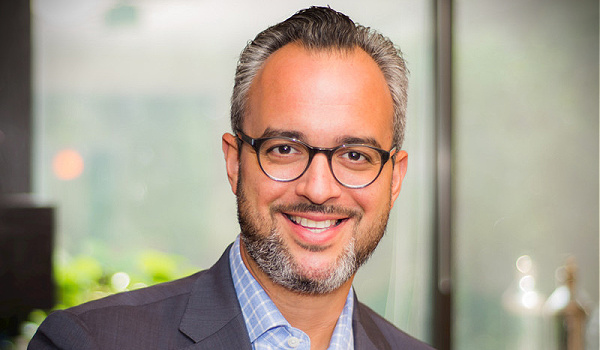Digital Wealth News is pleased to bring you our “Fintech Luminaries” series – featuring thought leaders within the digital wealth ecosystems. For our latest feature, we’d like you to meet Lou Camacho of Stratos Wealth Holdings. The Beachwood, Ohio, wealth management firm aggregator acquires majority and minority stakes in RIAs around the country and leverages best-in-breed tech platforms and solutions to help their portfolio firms operate more efficiently and turbocharge their growth. The fast-growing company includes Stratos Wealth Partners, a hybrid RIA with 286 advisors across 26 states that oversee $16.5 billion in client assets, and Stratos Wealth Advisors, a pure RIA with 32 advisors in 12 states that oversee $1.9 billion in assets.
NAME: Lou Camacho
TITLE: Chief Operating Officer, Stratos Wealth Holdings & President, Stratos Wealth Enterprises
COMPANY: Stratos Wealth Holdings
WEB ADDRESS: https://www.stratoswealthpartners.com/
What is the core philosophy that Stratos has with respect to identifying, selecting and partnering with fintech solutions providers that add value to the wealth management businesses that are acquired or recruited by the firm?
When we’re vetting a vendor, we ask if this is a well-known, widely used technology in the industry, with established integrations with custodial partners. We don’t want to take on the cost of building custom integrations because they tend to be clunky and create a more challenging experience than they’re worth. We also look for a vendor’s ability to support a relationship at the enterprise level, and we look for the ability to provide service in the long term. We’re a big firm, and we have complicated needs, and it takes time to build the infrastructure to successfully operate and scale up as we grow.
We select best-of-breed technologies that not only enhance the advisor experience and create workflow efficiencies for their staffs, but also provide a best-in-class end-client experience. We often talk about the difference between depending on technology and leveraging technology. Advisors often depend on their CRMs to remind them it’s Mr. Jones’ birthday tomorrow. Smart advisors leverage that information to write out a note sending birthday wishes to Mr. Jones. They use the technology to build stronger relationships with clients.
Let’s say you’ve acquired or recruited a wealth management business that has a limited to non-existent tech stack. What are the key building blocks of an effective tech stack that you will focus on initially?
As a general rule, we look at what we can add that will help the acquired practice be the best version of itself. For example, we recommend Salesforce, an incredibly robust CRM, for many of our portfolio firms, but if, for example, a firm has $400 million and four advisors, Salesforce may be more than they need. It is a tremendous piece of technology, but much of its power lies in ability to automate workflows, provide data analytics and integrate with other platforms. If advisors don’t need those features, Salesforce may not be impactful to their overall practice.
We analyze each situation and figure out if reengineering the entire tech stack will be impactful to a firm or, alternatively, it makes more sense to make smaller changes. It’s not an all-or-nothing scenario.
Once you’ve helped an independent wealth manager create a core tech stack, what are the medium- to long-term elements of the tech architecture that you typically focus on further building?
Once we get through the initial transition with an acquired firm, we work to make sure it is maximizing the technology in all aspects of the business. That can include enhancing workflows that create efficiencies in their day-to-day routine, leveraging the client portal so they can interface with clients in new and different ways.
Over the long term, once you get through the transition, implementation and training of technology, it’s about continuing to enhance the technology, while raising the experience for advisors, their staffs and clients. Because technology is such a big investment of time, energy and people, advisors have to be committed to it over the long term.
Are there fintech solutions that wealth managers erroneously believe are “must have” tools when they are, at best, “nice to have” solutions? And by that same token, are there fintech solutions that are frequently dismissed as not that necessary when should in fact be viewed as “must have” tools? How does Stratos help its financial advisors understand what is “must have” versus “nice to have”?
The must-have technologies are the ones that free advisors up to engage with their clients in the most impactful ways. They are also technologies like reporting systems and data aggregation systems that allow leaders to have a holistic view of the client experience. It doesn’t matter what specific tech it is — the must-have is the technology that frees the advisor to build and enhance the relationship.








